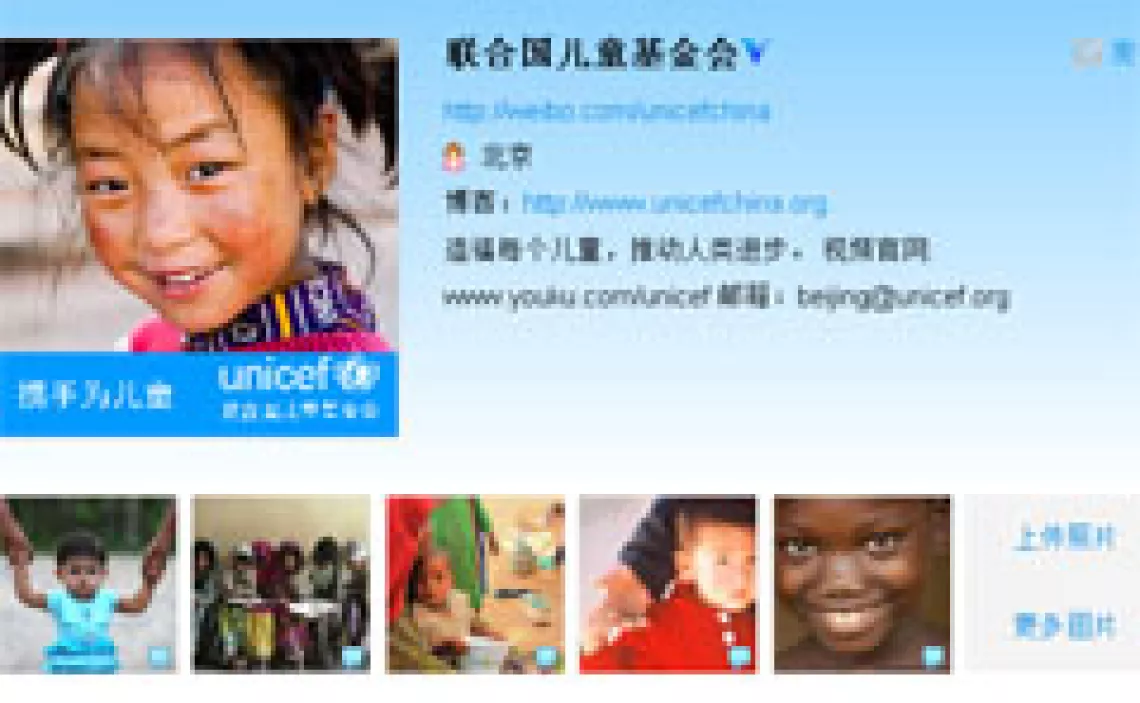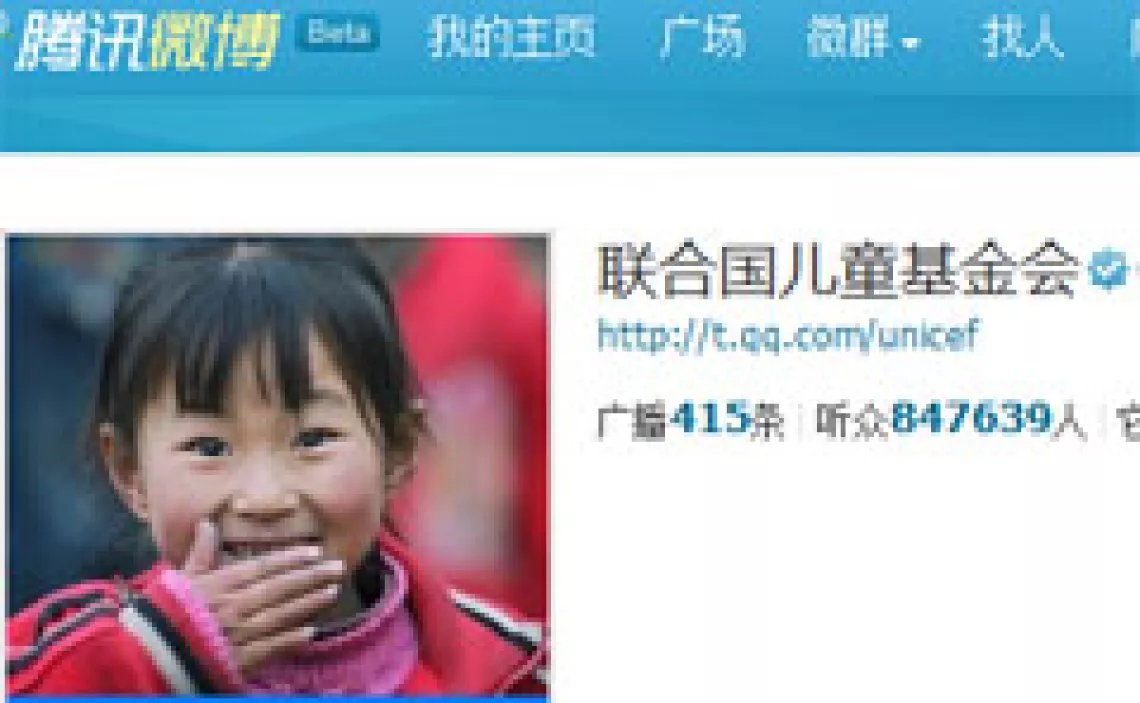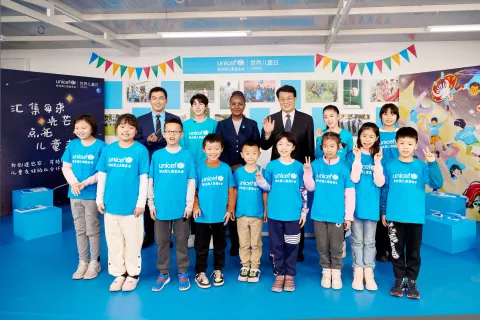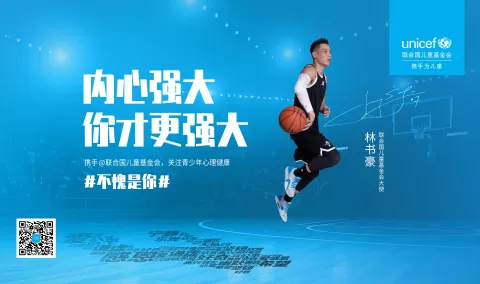Our View: Digital engagement to promote child rights
Weibo, China's equivalent to twitter, has flattened the landscape of philanthropy in China
- Available in:
- 中文
- English
With more than 500 million internet users and 250 million micro-bloggers*, Weibo, China's equivalent to twitter, has flattened the landscape of philanthropy in China.
The rise of social media for social good, or ‘micro-philanthropy' (Wei Gongyi), has mobilized an outpouring of support by tens of thousands of micro-bloggers for disadvantaged social groups, particularly for children, a task traditionally performed by governments and charitable organizations.
Today user-generated messages about urgent issues facing children: over-crowded school busses, children on the street, malnourished classrooms, to name a few, are posted, re-tweeted, and transmitted virally at an explosive rate. Issues and solutions are fact-checked, debated and brainstormed, all of which has led to increased public awareness, crowd-funded grassroots initiatives, and even, improved government policies.
On China's Weibo philanthropy is becoming more possible, more accessible and more immediate; no longer an activity for privileged millionaires alone.
The non-profit sector in China is also adapting, if not pressured, to become more transparent and accountable to its supporters. People want to be connected, via social networking sites, with each other and, more importantly, with the children they are helping. Failure to do so may risk a tarnished reputation and loss of their hard-won public trust.Weibo has provided the UNICEF China Office with a unique opportunity to directly engage thousands of followers. UNICEF opened two official micro-blogs, on Sina Weibo (link) and Tencent Weibo – China's top two social media channels.The goal has been to initiate or enhance constructive debate and discussion about children's rights in China. In a short space of time some fascinating results have emerged.


On 1st June 2011, National Children's Day, Maggie Cheung, UNICEF Ambassador and internationally renowned film actress, conducted a live chat with micro bloggers in order to help advocate for children's welfare.
The chat attracted 2,000 questions within an hour, a record for Sina celebrity chats. This one chat led to a 100% increase in the number of micro-blog followers, from 17,000 to 35,000. The live chat, the first of its kind for UNICEF and for Maggie herself, was also reported by newspapers and TV media. More importantly, UNICEF was able to engage in a lively discussion about an important and complicated children's issue: helping China develop family and community based support for its most vulnerable children.
UNICEF China also works to make child rights a daily topic of discussion by posting creative, engaging and informative messages on the care, support and protection of children.
The humanitarian crisis of children and their families thousands of miles away in the Horn of Africa was made relevant to the lives of the Chinese blogosphere by calling attention to universal humanity, disasters and food insecurity associated with global climate change. One viral tweet generated 16,442 reposts and 2,192 comments.
Regular and useful tips on maternal and child health, injury prevention and early stimulation, are warmly received and reposted, especially by parents and professionals.
UNICEF also works to have young people's voices heard in China's micro-blogs by encouraging them to express their concerns, needs and suggestions to micro-bloggers who are eager to discuss their issues.
On 13 October 2011, the International Day on Disaster Reduction (DDR), children's opinions on how to prevent disasters in their communities were posted live from a small village in Sichuan Province to thousands of followers across the country. UNICEF will keep exploring similar ways to enhance dialogues between children themselves and micro-bloggers on issues concerning them.
While thrilled by the power of new media in social mobilization, UNICEF China, is also concerned about well-meaning, yet risky social media campaigns that could put highly vulnerable children at greater risk, including exposing the visual identity, real names and locations of children.
In early 2011 UNICEF's note of caution on the posting of indiscriminate snapshots of vulnerable children ignited a hot debate about the best interest of children.
UNICEF hopes to keep presenting the child-rights perspective and examples of international best practice in the on-line discussions concerning children in China. Given the very thin line between citizen journalism and the rapid intrusion of public views into private lives with the ubiquity of camera phones and other new communication technologies, the effects on children are huge.
Regardless of the risks, the potential benefits of citizen engagement in social media for social good are massive. Positive, constructive and respectful social dialogue on urgent issues can help to spread awareness and improve conditions for children. Social development organizations have a duty to share factual, appropriate and beneficial information with the public.
To bridge the gaps and reach out to populations excluded from economic and social development in China will take the joint effort of the Government and civil society together. UNICEF China will continue to work with individuals, as Maggie Cheung said in her live chat: “Everyone can share the responsibility and play a role.”
*By the end of December 2011, according to the Statistic Report on China's Internet Development, CNNIC, published on January 2012.




